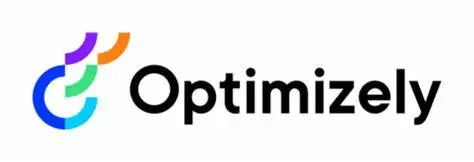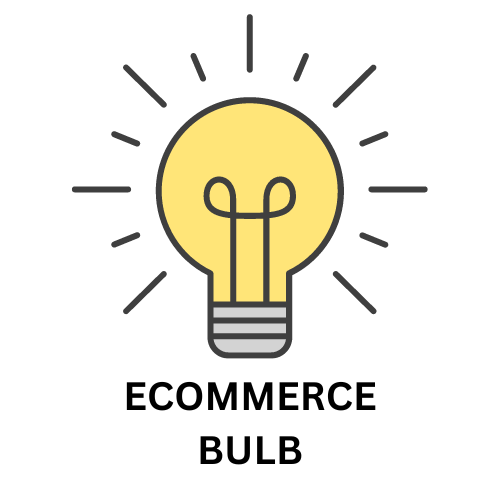In order to decide which ecommerce platform to use, Volusion vs Optimizely. A detailed comparison between features must be thoroughly done. If you want to decide which eCommerce platform to choose, there are many things to consider.
These are some examples of these factors:
- Cost.
- SEO friendliness.
- Page load speed.
- Canonical website URL.
- Indexing Control.
- Customizable HTML capabilities.
- Sitemap Generator.
- Integration with Google Analytics.
- Product Tagging and Categorization.
- Batch Uploading.
- Mobile Optimization.
- Built-in Blogging and Marketing Features.
- Social Sharing Buttons.
- Content Management Capabilities.
- Discount and promotion code tools.
- Easy to use Checkout.
- Reporting tools and custom reports.
- Integration of email marketing tools.
- Multiple payment options.
- Flexibility to add new eCommerce features.
- Exclusive features.
- Cons and pros.
Here we’ll discuss these factors to help you decide which platform is better for you, Optimizely or Volusion. And at the end of the discussion, we’ll recap and make a comparison for the scores of all these points to find out which eCommerce platform has the higher score, so that you’ll have a good view about both of them.

Pricing (Volusion vs Optimizely):

Volusion Pricing
Volusion offers several pricing tiers based on your expected annual sales volume:
- Personal: Suitable for small businesses with limited sales.
- Professional: For growing businesses with higher sales expectations.
- Business: Designed for larger businesses with significant sales volume.
- Prime: Custom plans for enterprise-level businesses.
Volusion’s pricing typically includes a monthly fee and might have additional charges for certain features or exceeding usage limits.
Optimizely Pricing
Optimizely offers a variety of pricing plans based on the specific features and modules you need:
- Content Cloud: For content management and authoring.
- Commerce Cloud: For eCommerce-specific features.
- Intelligent Cloud: For A/B testing and experimentation.
Optimizely’s pricing is often based on the number of users, website traffic, or specific features required.
What is Optimizely?

Optimizely is a powerful platform that helps businesses optimize their digital experiences across various touchpoints. It’s essentially a Digital Experience Platform (DXP) that offers a suite of tools to improve website performance, personalization, and customer engagement.
Key Features and Uses
- A/B Testing: Optimizely is renowned for its A/B testing capabilities, allowing businesses to experiment with different website elements (like headlines, images, or calls-to-action) to determine which versions perform best.
- Personalization: It helps create tailored experiences for individual users based on their behavior, preferences, and demographics.
- Content Management: Optimizely offers content management tools to create and manage website content efficiently.
- Commerce: It provides features for optimizing online stores and improving conversion rates.
Benefits of Using Optimizely
- Data-Driven Decision Making: Optimizely provides valuable insights and analytics to help businesses make informed decisions based on data.
- Improved Customer Experience: By personalizing content and optimizing website elements, businesses can enhance user experience and increase engagement.
- Increased Conversions: A/B testing helps identify and implement changes that lead to higher conversion rates.
- Faster Time-to-Market: Optimizely’s platform can streamline the process of creating and launching new website experiences.
In essence, Optimizely empowers businesses to deliver exceptional digital experiences by enabling them to experiment, personalize, and optimize their online presence.
Is Optimizely a SaaS?
Yes, Optimizely is primarily a Software as a Service (SaaS) platform.
While Optimizely used to offer a Platform as a Service (PaaS) option for its Content Management System (CMS), they have now introduced a SaaS version as well. This means that customers can choose between the two models based on their specific needs and preferences.
Key points about Optimizely as a SaaS:
- Cloud-based: The platform is hosted on Optimizely’s servers, eliminating the need for on-premise infrastructure.
- Subscription model: Customers pay a recurring fee for access to the platform and its features.
- Regular updates: Optimizely handles software updates and maintenance, ensuring users have access to the latest features and security patches.
- Scalability: SaaS models often offer easy scalability to accommodate growing business needs.

Is Optimizely a CMS?
Yes, Optimizely is a Content Management System (CMS).
While it’s primarily known for its A/B testing and personalization capabilities, Optimizely also offers a robust CMS platform. It allows users to create, manage, and deliver content across various channels.
Key features of Optimizely CMS:
- Headless architecture: Enables content delivery to multiple platforms and devices.
- Visual content editor: User-friendly interface for creating and managing content.
- Content personalization: Ability to deliver tailored content based on user segments.
- Integration with other Optimizely modules: Seamlessly combines content management with experimentation and personalization.

Is Optimizely an eCommerce Platform like Shopify?
No, Optimizely is not an eCommerce platform like Shopify.
While Optimizely does offer eCommerce functionalities as part of its Commerce Cloud module, its primary focus is on experimentation, personalization, and optimization of digital experiences.
- Shopify is specifically designed for building and managing online stores, offering features like product catalogs, shopping carts, payment processing, and inventory management.
- Optimizely is a broader platform that can be used to optimize various aspects of a website or app, including eCommerce stores. However, it’s not a full-fledged eCommerce platform like Shopify.
Think of it this way:
- Shopify is the foundation for your online store.
- Optimizely is a tool to improve the performance of your online store (or any other digital experience) once it’s built.
Often, businesses use Shopify for their eCommerce platform and then integrate Optimizely to enhance customer experiences and drive conversions.

SEO Capabilities (Volusion vs Optimizely):

Volusion SEO Capabilities
- Basic SEO Tools: Volusion typically provides essential SEO features like meta titles, meta descriptions, and URL customization for product pages and categories.
- Limited Control: Advanced SEO features might be restricted, and you might have limited control over website structure and sitemaps.
Optimizely SEO Capabilities
- Content Optimization: Optimizely, as a CMS, focuses on content optimization, allowing you to manage meta tags, headings, and other on-page SEO elements effectively.
- A/B Testing for SEO: Optimizely’s core strength lies in testing different SEO elements to determine what works best for your audience.
- Personalization: Optimizely can deliver personalized content based on user behavior, potentially improving SEO by providing relevant content to users.
In essence, while Volusion offers basic SEO tools for managing an online store, Optimizely excels in optimizing content and user experiences for better search engine visibility.

Page Load Speed (Volusion vs Optimizely):

- Volusion is an eCommerce platform designed to host and manage online stores. Page load speed is influenced by factors like product images, theme design, and server infrastructure.
- Optimizely is a Digital Experience Platform primarily used for A/B testing and personalization. While it can impact page load speed indirectly through the experiments it runs, its core function is not to optimize page load time directly.
Factors Affecting Page Load Speed in eCommerce:
- Hosting provider: The quality of the hosting service significantly impacts page load speed.
- Image optimization: Compressing and resizing images can drastically improve load times.
- Content delivery network (CDN): A CDN can distribute content across multiple servers, reducing load times.
- Theme and plugin quality: Heavy themes and plugins can slow down your store.

Canonical Website URL (Volusion vs Optimizely):

Canonical URLs are primarily used to address duplicate content issues in search engine optimization (SEO). While both Volusion and Optimizely likely have mechanisms to handle canonical URLs within their respective domains, comparing them directly is not relevant.
- Volusion as an eCommerce platform focuses on product pages, category pages, and other store-related content.
- Optimizely as a Digital Experience Platform (DXP) focuses on A/B testing, personalization, and optimization across various digital touchpoints.
Canonical URLs are more relevant when comparing eCommerce platforms or content management systems (CMS) that directly manage website content.

Indexing Control (Volusion vs Optimizely):

Volusion and Optimizely serve fundamentally different purposes and cannot be directly compared in terms of indexing control.
- Volusion is an eCommerce platform primarily focused on managing product catalogs and online stores.
- Optimizely is a Digital Experience Platform (DXP) used for A/B testing, personalization, and optimization.
Indexing control is primarily a concern for website builders and content management systems (CMS) that directly manage website content.

Customizable HTML Capabilities (Volusion vs Optimizely):

Volusion and Optimizely have different primary functions and cannot be directly compared in terms of HTML customization.
- Volusion is an eCommerce platform designed for building and managing online stores. While it might offer some level of HTML customization for themes or specific elements, its primary focus is on product management and checkout processes.
- Optimizely is a Digital Experience Platform (DXP) used for A/B testing and personalization. While it might allow for some HTML customization within experiments or personalized content modules, its core functionality is not focused on website design or development.
For HTML customization, it would be more relevant to compare Volusion or Optimizely to a website builder or content management system (CMS) like Wix, WordPress, or Shopify.

Sitemap Generators (Volusion vs Optimizely):

Sitemap generators are primarily used in the context of website builders and content management systems (CMS) to create XML sitemaps for search engines.
- Volusion is an eCommerce platform that typically includes tools for generating sitemaps for product pages and other store content.
- Optimizely is a Digital Experience Platform (DXP) focused on A/B testing and personalization, not on website structure or SEO.
While Optimizely might indirectly impact sitemap generation through content changes and A/B tests, it’s not its core functionality.

Integration With Google Analytics (Volusion vs Optimizely):

Volusion and Google Analytics
- Basic Integration: Volusion typically offers a basic integration with Google Analytics, allowing you to track website traffic and user behavior.
- Limited Control: The depth of integration and customization options might be limited compared to other platforms.
Optimizely and Google Analytics
- Deep Integration: Optimizely offers a robust integration with Google Analytics, allowing for advanced data tracking and analysis.
- Data Synchronization: Optimizely can sync data with Google Analytics, providing a comprehensive view of website performance.
- Enhanced A/B Testing: Optimizely’s A/B testing capabilities can be combined with Google Analytics data for more informed decision-making.
In summary:
- Volusion: Offers basic Google Analytics integration for essential tracking.
- Optimizely: Provides a deeper integration with Google Analytics, enabling advanced analytics and optimization.
Optimizely’s integration with Google Analytics is significantly more advanced, allowing for better data-driven decision making.

Product Tagging and Categorization (Volusion vs Optimizely):

- Volusion is an eCommerce platform designed for managing product catalogs and online stores. It offers features for product categorization and tagging.
- Optimizely is a Digital Experience Platform (DXP) primarily focused on A/B testing, personalization, and optimization. It doesn’t directly manage product catalogs or offer features for product tagging and categorization.
Product tagging and categorization are core functionalities of eCommerce platforms, not DXPs.

Batch Uploading (Volusion vs Optimizely):

- Volusion is an eCommerce platform designed for managing product catalogs and online stores. It offers features for bulk uploading products.
- Optimizely is a Digital Experience Platform (DXP) primarily focused on A/B testing, personalization, and optimization. It doesn’t handle product data or offer bulk uploading capabilities.
Batch uploading is a core feature of eCommerce platforms, not DXPs.

Mobile Optimization (Volusion vs Optimizely):

- Volusion is an eCommerce platform designed for building and managing online stores. It typically offers responsive themes or mobile-specific templates for mobile optimization.
- Optimizely is a Digital Experience Platform (DXP) primarily focused on A/B testing and personalization. While it can be used to optimize mobile experiences through experimentation, it’s not a platform for building mobile-friendly websites or apps.
Mobile optimization is a core feature of eCommerce platforms, not DXPs.

Built-in Blogging & Marketing Features (Volusion vs Optimizely):

- Volusion is an eCommerce platform that often includes basic blogging features to support content marketing efforts.
- Optimizely is a Digital Experience Platform (DXP) primarily focused on A/B testing, personalization, and optimization. While it can be used to optimize blog content, it’s not a primary blogging platform.
Blogging and marketing features are core functionalities of eCommerce platforms, not DXPs.

Optimizely alternatives:

Optimizely is a powerful platform for A/B testing and personalization, but it might not be the best fit for every business due to factors like pricing, features, or specific needs. Here are some notable alternatives:
Direct Competitors
- VWO (Visual Website Optimizer): Known for its robust feature set and user-friendly interface, VWO is a popular choice for A/B testing and personalization.
- AB Tasty: Offers a wide range of features including A/B testing, personalization, and feature flagging.
- Dynamic Yield: Focuses on personalization and recommendation engines, with strong AI capabilities.
- Monetate: Provides advanced analytics and experimentation features, often used by enterprise-level businesses.
- Google Optimize: A free option for basic A/B testing, integrated with Google Analytics.
Other Notable Options
- Adobe Target: Part of the Adobe Experience Cloud, offering integration with other Adobe products.
- Salesforce Marketing Cloud: Provides personalization and optimization features as part of a broader marketing platform.
- Crazy Egg: Primarily known for heatmaps and user behavior analytics, but also offers A/B testing capabilities.

Volusion Alternatives:

Volusion is a popular eCommerce platform, but it might not be the best fit for every business. Here are some strong Volusion alternatives:
Popular Volusion Alternatives
- Shopify: Known for its user-friendliness and extensive app store, Shopify is a top choice for many online businesses.
- BigCommerce: Offers a strong focus on performance and scalability, making it suitable for growing businesses.
- Magento: A highly customizable open-source platform for businesses with complex needs.
- WooCommerce: A popular option for WordPress users, offering flexibility and integration with WordPress plugins.
- Squarespace: Known for its beautiful designs and ease of use, Squarespace is a good choice for businesses prioritizing aesthetics.
Other Notable Alternatives
- Shift4Shop (formerly 3dcart): Offers a wide range of features and competitive pricing.
- Ecwid: A shopping cart solution that can be integrated into existing websites.
- Shopware: A German-based platform with a strong presence in Europe.
- PrestaShop: Another open-source option with a large community and extensive customization possibilities.



Leave a Reply